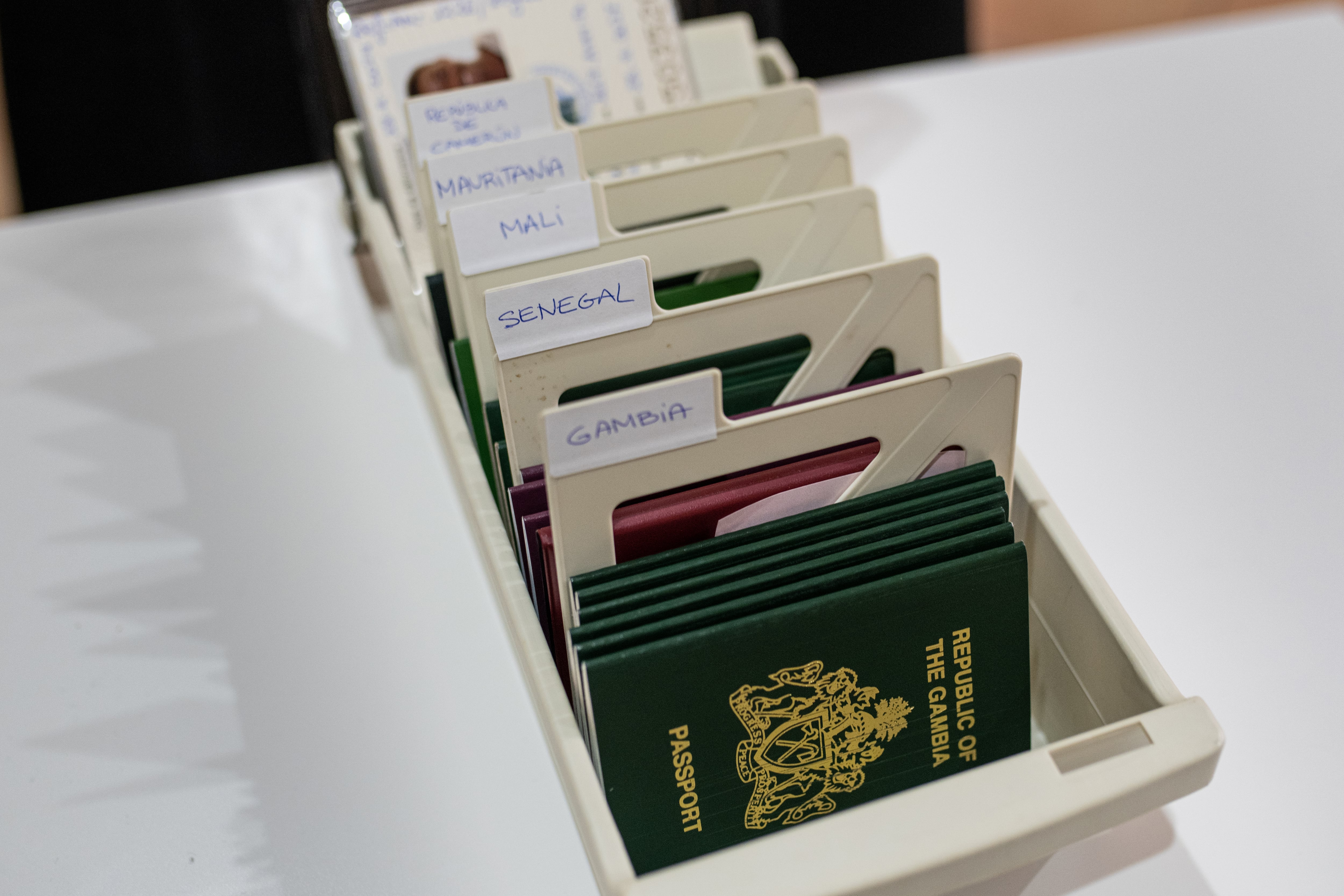The hidden data of migrant minors in the Canary Islands: 5,000 children without regularizing | Spain

The children and adolescents who arrived alone In Cayuco to the Canary Islands they are not only overcrowded, but they also have no papers. Only about 800 children than 5,800 who are protected on the islands have a residence authorization, according to the official data that the country has crossed. The figure is not public, nor accessible internally, perhaps because it reveals flagrantly how the system and administrations fail. The fact that only 14% of all these young people have a residence authorization implies that the law is being disobeyed, which forces to process their documents. The « general breach », The Ombudsman denounced Last summer, it pushes that « hundreds of minors reach the age of majority each month without documenting. » Although these guardianships are considered regular for all purposes, the lack of authorizations of residence and work is a serious problem, especially when they turn 18 and are seen in the street. « Documenting children is the way to give them access to their rights. And the law must be fulfilled, » says a source dedicated to the protection of minors for almost four decades.
The documentary limbo in which the minors of the Canary Islands are maintained should not be an impediment to relocate them in other regions, How to do in summerbut it will be an added problem for them. If it does not coordinate well and information is not exchanged, the destination communities and their government delegations will have to initiate the zero procedures of all those who do not have their papers in order.
The responsibility of these numbers is shared. On the one hand, the Autonomous Administration fails, which is the first to start the process to request the residence authorizations of the boys. But, on the other, the State fails, which has the ultimate responsibility to regularize them. Because if at 90 days of its reception by protection services, the minor does not have a residence permit, the foreigners have the legal duty to process it and resolve it within one month. But they do it much less than they should. In March, in the drawers of the two foreigners of the islands, there were more than a thousand files (about 400 in Tenerife and almost 700 in Las Palmas) that should have been opened ex officio and that had not even begun, as recognized by sources known to the situation. The coordination between the two administrations also fails. And also the Prosecutor’s Office, to whom the Ombudsman, as a “guard of the action in protection of minors”, has asked to get more involved in this issue.
When a minor arrives in Spain in Cayuco or jumping a fence, it is normal for him to do it without his passport or without documents that help identify him. Simplifying the explanation of the process, the reception centers, which respond to the general direction of the Canary Islands, have to process their passports. But depending on the country (It is easier with Morocco than with Guinea or Mali), or do not emit or take so long to do so that children cease to be children, so the law includes an alternative that facilitates things: the registration card. This document, processed by the National Police, replaces the passport when foreigners cannot be documented by their countries. And this certificate is not easily issued, which led the Ombudsman to ask, given the emergency situation that the islands live, more flexibility.
In some reception centers, with hundreds of children, this process is not taken seriously, while in others it is a priority, although all meet the same situation: daily arrivals, lack of means and overflow.
The Canarian government has launched a shock plan with 39 technicians to process documentation, monitor cases and open new centers, but recognize the impossibility of taking everything up to date with new and constant minors.
The Government Delegation is shielded in that inability to the Canarian protection services to justify the low number of ex officio files of those that are responsible. « It is a priority to open all the files of the minors ex officio and require the necessary documentation, but the number of responses of the Directorate of the minor is scarce. The Canary Islands government has not presented the minimum documentation to be able to resolve these files, » justifies a spokesman. The explanation responds to the impossibility of completing a procedure without the necessary documents or without even effective communication (here the coordination failure) with the protection services of the Canary Islands, but does not clarify why in March the foreigners offices had a thousand files that had to start ex officio and that they had not even begun to be reviewed. Nor does it respond to why this problem has been crawling for so long (the reproaches of the Ombudsman appear in their reports at least 2020).
The current bad figures do not differ much from which the defender made public last summer and revealed that, as of December 31, 2023, only 793 of the 4,800 minors reviewed in the islands had authorizations of residence. The situation has not only improved, but the percentage of children documented today is even lower than then.
The lack of response to the regional services of minors also does not justify why there are so many open files without resolving in the foreigner offices: 2024 closed with only 555 authorizations granted, while they were in process more than 3,000, according to internal data to which the country had access. « The offices are, in a way, overwhelmed because they have to process many other issues, » they bet from the Government Delegation.
Upon knowing these numbers, Save the Children’s migration expert, Jennifer Zupporili, described them as « demolishing. » Zupporili believes that « it is understandable » that a territory that welcomes almost 6,000 children face « difficulties and delays », but warns: « Social and work inclusion goes through having a residence and work authorization, more when we talk about adolescents who are close to the age of majority. Without roles, their rights and opportunities are limited. » The organization calls for the responsible authorities, « state and regional », so that « no child stays without documentation. »
The irregularity of unaccompanied foreign minors has been a constant in Spain. In November 2019, this newspaper revealed that, of the 12,300 protected in reception centers throughout the country, Only 2,573 had a residence authorizationbut in 2021 the law changed to reverse these figures. The then Minister of Migration, José Luis Escrivá, changed the Foreigners Regulation to facilitate procedures, shorten deadlines, allow them to work and, in general, try to end the problems to document migrants guardiansly and extined migrants. That change was considered a success because, since then, thousands of kids between 16 and 23 years have regularized throughout Spain and have joined the labor market. Not so much in the Canary Islands.





:format(webp)/s3/static.nrc.nl/images/gn4/stripped/data133314127-765aec.jpg)

